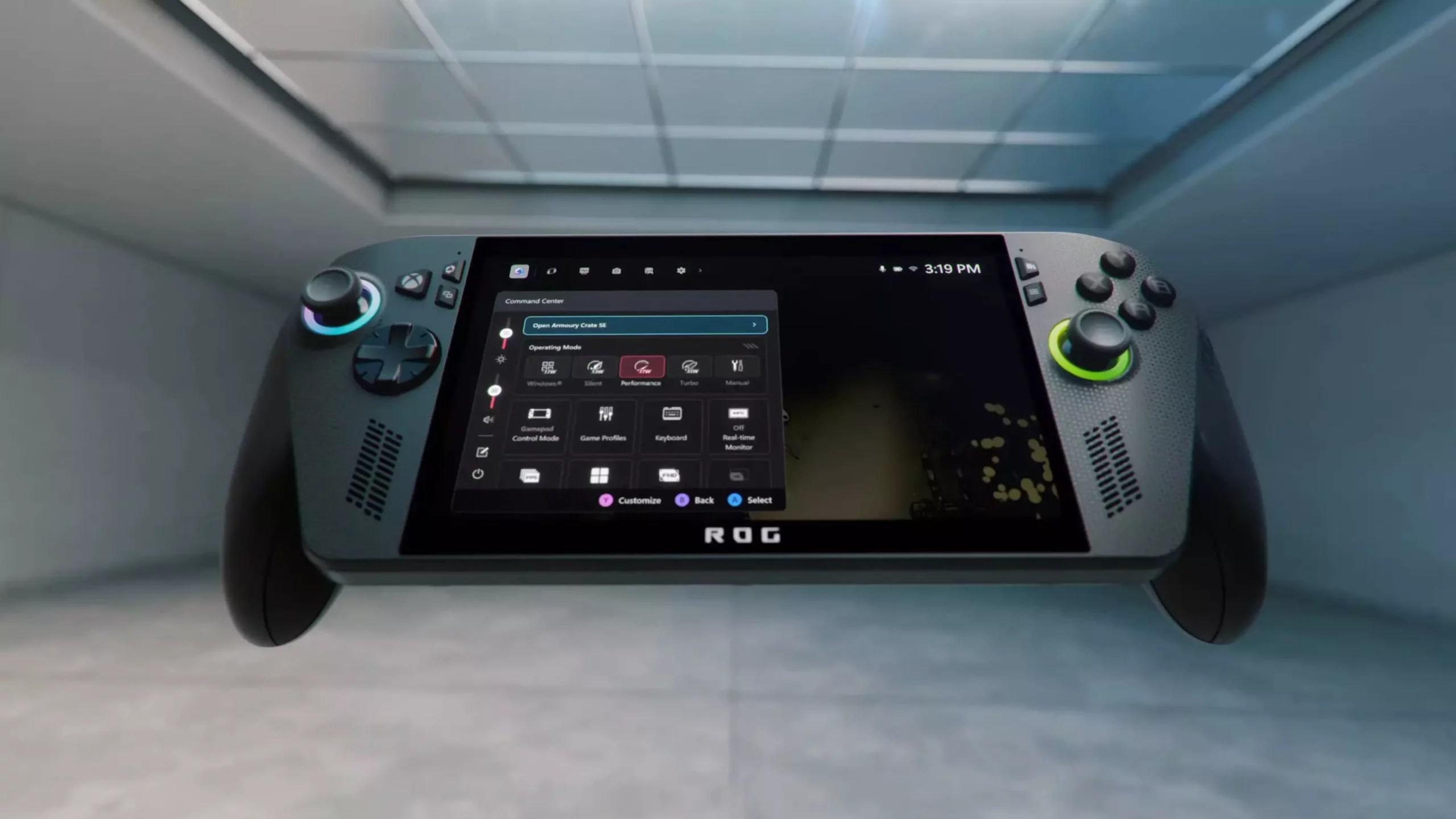Recent speculation emerging from the Verge regarding the future of Xbox has stirred excitement and confusion among gamers and industry analysts alike. The claim that Microsoft’s first handheld console, tentatively referred to as the Xbox handheld, is “essentially canceled” raises eyebrows. Could this really be the fate of a highly anticipated device that wasn’t even officially confirmed? The uncertainty surrounding this news speaks volumes about the evolving relationship between hardware and software in the gaming world.
The Asus ROG Xbox Ally and ROG Xbox Ally X recently unveiled aren’t true Xbox devices in the traditional sense. Instead of being a revolutionary hardware game-changer, these handhelds represent a strategic pivot. They are desktop PC repackaged for portable use, running a streamlined version of Windows specifically tailored for gaming. This shift signifies something more profound than just console cancellations; it indicates Microsoft’s budding relationship with third-party hardware and a potential transformation of the gaming ecosystem itself.
The Future: Collaboration Over Competition?
A critical perspective on the rumored cancellation is that it may not be a failure, but rather an adaptation to a changing market landscape. Analysts are proposing a future where Microsoft might not make Xbox consoles directly at all. Instead, it could license its Xbox branding and operating systems to companies like Asus, thereby leveraging partnerships to stay competitive. This new direction could open the floodgates for myriad Xbox-branded hardware tailored to a wide range of gamers—everyone from casual players to hardcore enthusiasts.
Imagine a world where different manufacturers produce Xbox devices—each offering variation in design, performance, and price point to cater to individual needs. Instead of focusing on building its own hardware from the ground up, Microsoft could step back and create a flexible ecosystem, partnering with various players in the industry to maintain relevancy and player engagement. Such a shift could allow Microsoft to optimize Game Pass subscriptions, delivering rich gaming experiences across multiple platforms, potentially erasing the boundaries between console and PC gaming.
The Game Pass Ecosystem: The Heart of Microsoft’s Strategy
The core of this new approach seems to be the Game Pass initiative, which has become Microsoft’s flagship service. By transitioning focus from hardware to an expansive gaming platform, Microsoft is keen to enhance subscriber retention and create a robust community around Game Pass. The newly designed Windows, stripped down for maximum efficiency, serves this objective. With fewer unnecessary features, the intention is for Microsoft to control the user experience regardless of the hardware.
Moreover, integrating backward compatibility through streaming or emulation would attract players who have invested in previous generations of Xbox titles. Instead of letting a console generation fade into shadows, Microsoft appears to be agile enough to pivot towards a model that allows for continuity and access across devices. By promoting compatibility and leveraging an evolving service model, Microsoft might navigate away from the traditional console lifecycle, enticing gamers with a broader universe of gaming options.
Market Testing with Third-Party Hardware
The partnership with Asus also poses an intriguing proposition: could these handheld devices be seen as more than just products? They might serve as market tests to understand consumer desires and technological demands as gamers navigate the transition away from traditional consoles. As Tom Warren from the Verge suggests, this could enable Microsoft to harness user experiences to refine and evolve the Xbox brand’s hardware ecosystem actively.
By allowing variations of Xbox to emerge from third-party manufacturers, Microsoft can conduct real-time consumer testing—applying insights to future iterations without bearing the full brunt of production costs and risks associated with developing hardware from scratch. Such a model emphasizes the importance of feedback, positioning Microsoft’s gaming universe as one that evolves in tune with player preferences.
Transforming the Gaming Experience: What’s Next?
While the cancellation of a standalone Xbox handheld is bittersweet for some, it invites us to re-envision the gaming universe as one defined by partnerships rather than more traditional norms. Differentiating itself in a crowded market will require agility and vision. By focusing on cross-compatibility, software innovation, and value for gamers through subscription models, Microsoft takes its first steps into a new era of gaming.
Upcoming changes could redefine our expectations of console generation updates and what it truly means to be an “Xbox gamer.” It’s a thrilling yet uncertain phase for gaming, prompting players and industry insiders alike to ponder the endless possibilities that lie ahead. As we stand at the threshold of this potential revolution, the only question left is: how will we embrace the future of gaming?


Leave a Reply